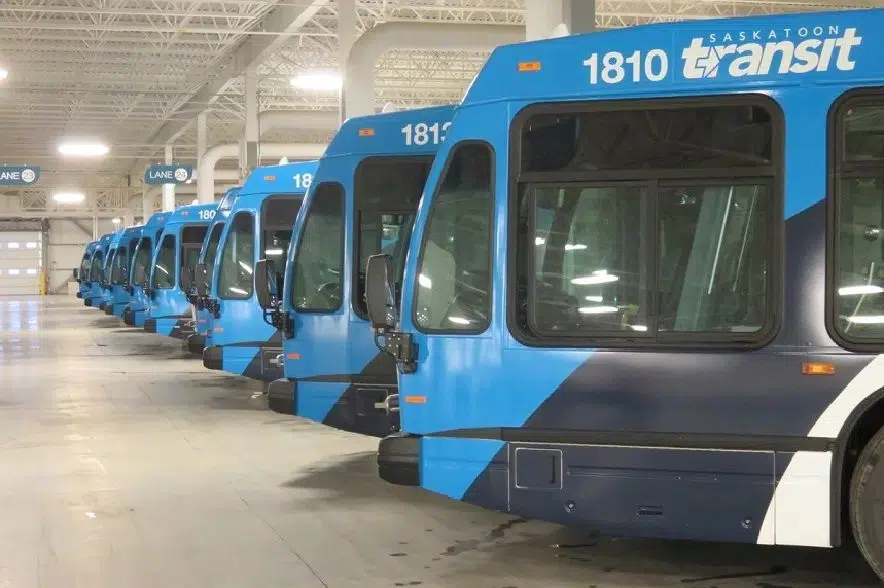Saskatoon Transit is letting the public know early that there might be an increase in the number of buses breaking down and the potential for service disruptions this winter.
In a report to the city’s transportation committee, operations director Mike Moellenbeck wrote: “It is anticipated the risk for service interruptions will increase in the winter of 2023/2024 relative to the winter of 2022/2023.”
Jim Puffalt, the city’s transit director, said there have been changes to the way buses are maintained heading into the wintertime, but because the fleet of 126 vehicles is aging, there could be more breakdowns this year.
“We wanted to just give people expectations that there’s potential something could happen this year,” he said.
It’s not something Puffalt believes Saskatoon Transit has done before.
“We want to be open and transparent with folks that this could happen and that we’ll do everything we can to let them know when it does happen. We are working very hard so it doesn’t happen,” he added.
According to the report, Saskatoon has not had a new bus in its fleet since 2019, and the average age of a public transit bus is 11.4 years.
The report also said there’s “a higher frequency of significant defects necessitating more time spent on repairs. Additionally, winter weather and extended periods of cold can increase defects which negatively impact bus reliability.”
Two new electric buses are expected to be delivered in the first three months of 2024, while eight diesel buses are expected between July and September.
During Wednesday’s transportation committee meeting, Mayor Charlie Clark asked whether other options to keep more buses on the road had been explored.
He was told a leasing option was considered, but the buses would have been even older than Saskatoon’s at around 16 years. As well, the cost would likely be between $200,000 and $300,000 not including any additions needed, like fare boxes and driver protection.
Puffalt said Saskatoon Transit had implemented changes to its department after an audit cited inadequate staffing levels, ineffective inventory management, inadequate management of transit issues, lack of performance indicators for bus repairs, a lack of data-driven decision-making, and ineffective communication processes, among other problems.
The audit noted that during December 2021 and January 2022, there were dozens of bus breakdowns, route cancellations, and buses out of service.
“The buses are being properly maintained, and we’re looking after them in accordance with the auditor’s recommendations,” Puffalt said.
However, he added the winter season can be hard on all types of vehicles, including buses.
EDITOR’S NOTE: This story has been amended to show the correct number of electric buses the city is receiving in the early stages of 2024.











